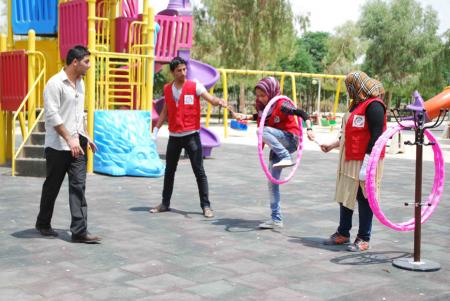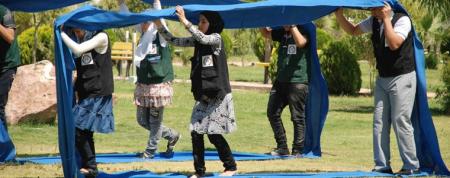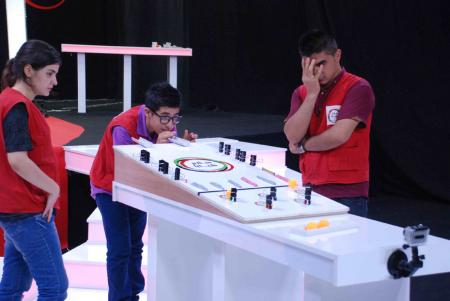Mon, Sep 16, 2013
by Theo Dolan
An award-winning reality TV show for Iraqi youth called Salam Shabab (Peace Youth) will air its third season beginning October 5 on Alhurra-Iraq. Since Iraqi youth represent over half the country’s population, they inevitably will bear a large share of the burden in resolving their country’s conflict, and many through the program have indicated a willingness to take on that responsibility.
Salam Shabab melds an entertaining reality show with an educational program that seeks to empower Iraqi teens with the skills and values needed to become next-generation peacebuilders. Filmed by Iraqi producers with the support of the United States Institute of Peace (USIP), the program brings together young Iraqis from all over the country to compete in a series of challenges -- including sport, mental, film and performance. The youth learn respect for diversity, the importance of teamwork and self-confidence, and the imperative of taking civic action.
Participants on the TV show say they gain motivation and confidence through the program. The energy of the Iraqi youth online has also helped the peacebuilding message resonate with peers in other conflict-affected countries in the region. USIP reports that the second-largest group of participants in the Salam Shabab online community, after Iraqis, consists of Egyptian youth. The Facebook fan page attracts youth from 43 countries, including from across the Arab world.
Salam Shabab was also recently featured as a success story at a digital media literacy course at the American University of Beirut. Sixty-six university students from 18 countries took part in the August training aimed at promoting media literacy for social change, and they identified Salam Shabab as a key online tool for peace advocacy.
To read more from the United States Institute of Peace, click here.
To read the full piece from United States Institute of Peace, click here.






